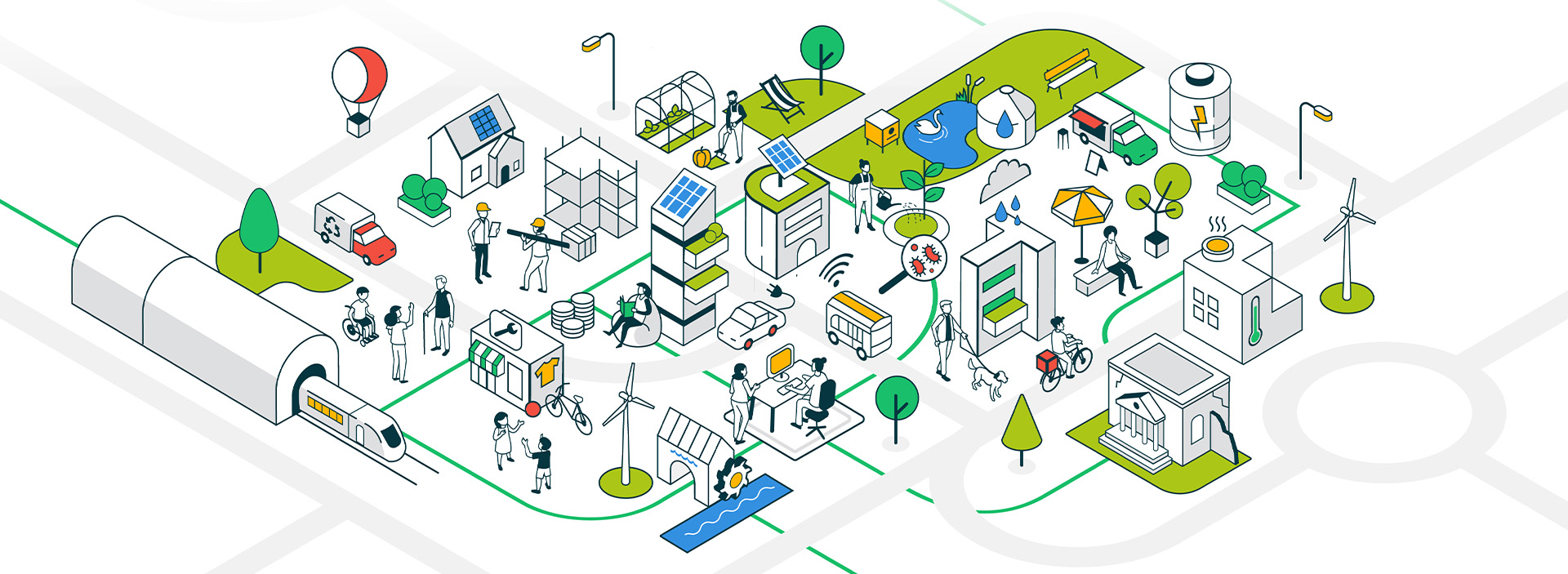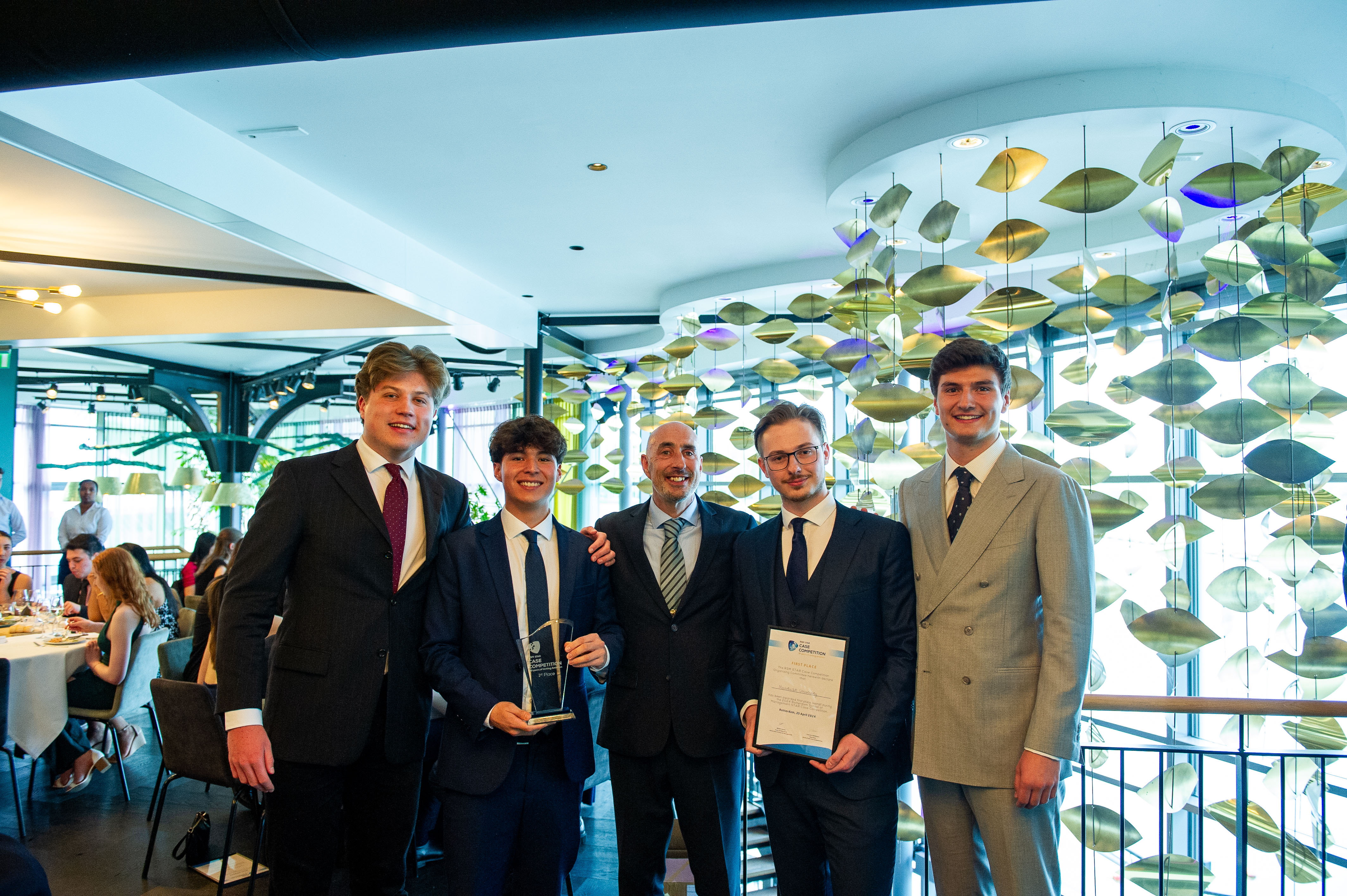Resilience is the new Efficiency
Economists have long obsessed with efficiency. At the macro- and micro level such things as slack, waste and inefficiency were considered things to avoid and economists have advocated free markets and open competition to eliminate them. In this blog I will argue that we have been too successful, and that perhaps resilience should become our new efficiency…
Recent shocks show us that efficient systems can become vulnerable. The financial crisis of 2007-2009 was a wakeup call for the financial establishment. COVID-19 revealed weaknesses in our health infrastructures. And the energy and food price shocks now reveal how dependent and vulnerable we have become on cheap fossil fuel from Russia. The dynamic that all these crises have in common is reminiscent of Hyman Minsky’s theory of financial fragility. He argues that risks build up in a system automatically because they are stable, making all stability temporary. For financial systems, the cycle is best documented by Reinhardt and Rogoff’s This Time is Different. After a crisis we are all alert and wary and regulators and investors require robust reserves and prudent decisions and monitor the sector with extra vigilance. As time passes and new opportunities arise, optimistic investors take a little more risk, which in conservative markets tends to pay off. More and more people jump on the bandwagon and as more people take more risk, the system starts to become less stable. A small, insignificant event can then spark a cascade of events that destabilizes the entire system and causes another crisis.
Similarly, decades of small and mild outbreaks of new viruses combined with the economic mainstream eliminating slack and waste in our (still rapidly expanding) public health care systems, allowed policy makers and decision makers in health care to take incrementally higher “risks” by cutting budgets and spare capacity. Before COVID-19, the Dutch healthcare system operated with only 6,7 IC beds per 100.000 inhabitants (cf. 16 in Belgium, 19 in France and 48 in Germany). Of course, one can lament the shortages in IC-capacity once a pandemic hits the country. But in the decades without pandemics, Dutch taxpayers saved quite an amount by cutting away this “excess” capacity. A similar story can be told for (absent) national gas reserves. Or spending on disaster readiness, by for example spending on an army, the police, and our firefighters.

Keeping IC-capacity, or financial resources, or food- and energy supplies and emergency response capacity in reserve is very costly. And most of the time all they buy is peace of mind. But most importantly, in a competitive market, there is no business model for keeping costly resources in reserve. And taxpayers, enjoying prolonged periods of relative health, peace and stability, have a hard time measuring the benefits when the costs are all too clear.
Now of course I could conclude by arguing our government should spend more on all these reserves, foregoing the benefits of competition while preparing for the last calamity that has befallen us. And more spending on care, security and defence is surely justified in the Netherlands. Especially on the wages of the people that make all the difference there. But most important is that we invest in the resilience of our systems. And that is not the same.
Resilience is the ability of a system to resist a shock and recover after a shock has hit. That ability does not depend on stocking up people and equipment in advance but managing a crisis effectively when it hits. The key thing to realise here is that handling a crisis is easy enough if you know what to prepare for. But you typically do not. This makes crises less suitable for top-down management by scripts. If a crisis unfolds in unpredictable and unforeseen ways, you need to acknowledge that you cannot have all the information you need to act in an optimal way. It is then often better to make sure those close to the problems have access to the resources they need to implement their solutions. And quickly learn and select among these experiments to scale up what works. This is a rather entrepreneurial way of working.
Entrepreneurs, who I define as people that challenge the status quo in which they find themselves, routinely engage in experimentation because they operate under (sometimes deep) uncertainty. They try, learn, pivot, and try again until they find the solutions to their problems (or fail). They are the source of innovation according to Schumpeter, but they also have a notoriously difficult time attracting financial, human and knowledge resources for their ventures, exactly because these are inherently uncertain. Still, the entrepreneurial mindset and approach is what we have seen working in many places during the COVID-19 lockdowns and hopefully will again in the current energy- (and global food) crisis that the Russian invasion of Ukraine has now provoked.
Organising resilience then requires creating more entrepreneurial organisations. Responsible leaders in public and private sectors should organise better access to their organisations’ resources for the challengers of their status quo from within and without. This is not easy, as the leaders of an organisation will often feel responsible for and act as defenders of that status quo. The way to justify a more open attitude is to be very clear on the merits that both status quo solutions and their challengers will be selected, such that only better ideas can ever replace the good ones in place. In normal times this will inspire innovation, while in times of crisis, entrepreneurship creates resilience at the personal, organisational, and systemic level.
The best way to prepare for change is to make change your routine and resilience should become our new efficient.
This blog is written by Mark Sanders, professor of international economics at the department of Macro, International and Labour Economics (MILE) at Maastricht University School of Business and economics. His research focuses on innovation, entrepreneurship, resilience and transition to sustainability.
Also read
-
Maastricht Sustainability Institute (MSI) of Maastricht University School of Business and Economics (SBE) has successfully applied for funding in the ‘Driving Urban Transitions’ program of NWO/ JPI Urban Europe. Three new transdisciplinary projects with international partners have recently started...
-
SBE took first place in the Rotterdam School of Management Star Case Competition (RSMCC). The competition welcomed 16 top-level international business teams of four students, who were tasked with tackling two real-life business cases.
-
Higher air pollution increases the likelihood of people voting for opposition parties rather than ruling parties. This is the major finding of research by Nico Pestel, a scientist at the Research Centre for Education & Labour Market (ROA) at the Maastricht School of Business and Economics.


